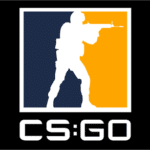Crisis Management in Esports

As the esports industry continues crossing into the mainstream it’s time for top orgs to make crisis management and crisis communications efforts a part of daily business
Today esports – the world of video game competitions in titles like Fortnite, FIFA, and League of Legends – is a 1.4 billion dollar market with forecasts showing it could easily reach nearly $2 billion by 2025. Whether you’re a gamer or not, it’s likely you’ve come across some extension of this universe – maybe through a family member who spends hours watching professional players stream themselves playing titles like Fortnite, Minecraft, and Call of Duty live on Twitch.tv, or maybe via events like 2021’s eNASCAR iRacing Pro Invitational which was shown on Fox and NBC in lieu of traditional NASCAR races when COVID suspended the season. Experts estimate the audience for esports will surpass half a billion in 2022 with +8.7% year over year growth expected after, and even single events draw millions of viewers. For example, the recent 2022 League of Legends World Championships have been documented as having more than 5.1 million viewers with 141.9 million hours watched over the course of the tournament which was sponsored by household names from far outside the gaming space including Mercedes Benz and Mastercard.
Successful professional gamers now make serious cash themselves. Winning teams frequently earn five or six figures prizes for big wins, and in some cases even more – for example Dota 2’s “The International” tournament featured a $40 million prize pool in 2021 with members of the winning team taking home a mind-blowing $18 million to split amongst their five man squad. Top orgs also pay their stars, many of whom come into the business before they’ve even finished high school, legitimate five and six-figure salaries, provide housing, and some have even begun integrating physical trainers, sports psychologists, and other support staff you might expect to find surrounding top athletes in any niche. Speaking of top orgs, Forbes estimates the 10 most valuable esports companies to be worth an average of $353 million each, and some, like the No.2 valued “100 Thieves” brand, have even attracted celebrity owners – Drake, music mogul Scooter Braum, and billionaire Dan Gilbert are all part-owners of that $460 million operation.
Real esports crisis management examples
Of course, simply having deep pockets doesn’t mean crises don’t rear their heads. Sometimes it can even exacerbate the issue. Let’s look at a few recent examples of incidents that should inspire anyone in esports to reconsider their own crisis management and crisis communications preparedness levels…

2015 was a banner year for esports when former NBA star Rick Fox purchased League of Legends team Gravity Gaming along with his business partner Amit Raizada. The team, which was quickly renamed to Echo Fox, drew massive attention due to Fox’s involvement and the possibility of more mainstream crossover it created. Fox continued to help create interest in the team, the league, and esports in general for several years until, in 2019, he suddenly left the company amid a flurry of litigation, publicly sharing allegations that Raizada had threatened his family and repeatedly used racial slurs to refer to both CEO Jace Hall and Fox himself. The commissioner of the North American League of Legends Championship series launched an investigation, ordered Echo Fox to remove Raizada from its payroll within 60 days, and, when it failed to do so, sold their franchise spot to another team.

An example fresh in the minds of most esports fans is probably the recent fiasco at Germany’s G2 Esports, which started in September 2022 because CEO Carlos “ocelote” Rodriguez shared a video partying with known anti-female influencer Andrew Tate and, when called out by followers, doubled down on the post with the now-infamous line, “I party with whoever the f#ck I want”. Rodriguez quickly went from suspended to removed as CEO of G2 Esports when the organization missed out on what had been an all-but-guaranteed franchise spot for Riot Games’ VALORANT Master’s League worth millions of dollars in revenue. While G2’s PR team ultimately steered things back, it’s indisputable that this entirely preventable crisis cost them serious money and created thousands of negative search results which could haunt them for years to come.

Only a year before, another major esports CEO, Andy “Reginald” Dinh of Team SoloMid – valued at $540 million – landed himself in hot water after he engaged in a full-blown social media war with perennial League of Legends all-star and former Team SoloMid team member Peter “Doublelift” Yillian. During the course of the back-and-forth, Yillian alleged that Dinh had verbally abused, harassed, and outright lied to his players and staff, some to the point of mental breakdown. While Dinh denied these claims, an investigation by Riot Gaming found that, “there was a pattern and practice of disparaging and bullying behavior exhibited by Andy Dinh towards TSM players and staff members” and fined the organization $75,000 along with installing an independent monitor to keep tabs on the wellbeing of current players. If the Team SoloMid name sounds familiar to those of you not already following esports, you may have come across the name in mainstream coverage of their $210 million, 10-year deal with collapsed cryptocurrency exchange FTX which would see the team renamed to TSM FTX, a deal that was scrapped once the downfall of FTX became apparent.

Let’s round this out with an absolutely astounding an example from the world of Counterstrike: Global Offensive, CS:GO to fans, one of the longest-running esports titles with competitive history dating back to 2012 and a global market estimated to be worth some $400 million annually. In August 2020 it was announced that an initial investigation into use of the “coaching bug” in which coaches could see the positions and strategies of enemy players had resulted in a whopping 37 coaches being suspended or banned. As the investigation continued the numbers piled up, and when it finally wrapped in 2022 it was announced that nearly ONE HUNDRED coaches were going to be or already had been suspended for abuse of the bug, which may have influenced the outcome of multi-million dollar tournaments for a shocking portion of the game’s existence.
How do esports orgs make sure they’re ready to handle crisis management and crisis communications?
Any business out there should be aware of the risks inherent to their industry, and work to keep that knowledge current – hopefully mostly through learning from the mistakes of others rather than their own! Esports does present a challenging environment, one born of high emotions, the pressure cooker of competition, and a…let’s just politely say “extremely vocal” fanbase, not to mention the tendency towards smack talk that’s ingrained in most hardcore gamers which doesn’t necessarily translate well to press conferences. As we’ve seen in just the few examples above, the potential for crises or reputation threats that might easily spook mainstream brands is there and very much present.
So, what’s the answer? It really boils down to the best practices any large, successful organization should follow. Integrate crisis management and crisis communications efforts into day-to-day operations, engage in realistic, applicable planning, and invest in spokesperson or media training for everyone who represents their brand in the public eye – from the owners to the players themselves. If you’re behind the ball on this (perhaps “lagging” would be more appropriate given the subject matter?), the time to catch up is now. We already saw esports exhibitions as part of the official, International Olympic Committe-sponored, runup to 2021’s Tokyo Olympic Games, and esports are making their debut as official medal events in the annual Asian Games to be held in fall 2023 alongside traditional sports like aquatics, baseball, and gymnastics.
As we know, when it comes to mainstream success, resilient, reputable, and reliable get the first chance at big opportunities. With more and more major advertisers recognizing the built-in and ready-to-spend audience esports can offer, you can bet there’s big money on the tables for those who can get the combo right.
Erik Bernstein
erik@bernsteincrisismanagement.com
